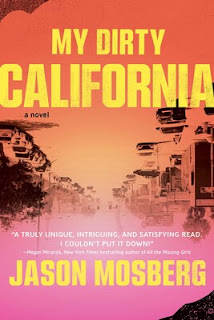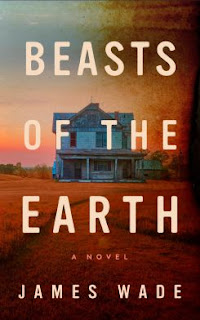Jennifer Givhan, a National Endowment for the Arts and PEN/Rosenthal Emerging Voices fellow, is a Chicana and Indigenous novelist, poet, and

transformational coach. She is the author of
Jubilee, which received an honorable mention for the 2021 Rudolfo Anaya Best Latino-Focused Fiction Book Award, and
Trinity Sight, winner of the 2020 Southwest Book Award. She has also published five full-length poetry collections and her honors include the Frost Place Latinx Scholarship and the Joy Harjo Poetry Prize.
Givhan applied
the Page 69 Test to her new novel,
River Woman, River Demon, and reported the following:
From page 69:
It was like that each midnight for seven more nights. Each time we returned to the fork in the road—the place no one owned, the place that belonged to the spirits—some animal or other came to greet us. One night, a black fat-tailed scorpion scuttled across the sand, and Jericho said it represented adaptation and strength—even the small guy’s got to protect himself. Later, I looked up the scorpion’s origins: native to Africa. There’s no way it should’ve been in San Diego. Had he conjured it?
“The spirits will come,” he said. “You have to believe they’re coming. That they’re already here.”
The final night Jericho said if the spirits had accepted, then the Black man would come.
I grinned ruefully up at him, thinking he was teasing. He’d been there all along, right? Jericho was the devil?
He rolled his eyes at me. “Not a brown-skinned man, Eva love. Not that kind of Black man. And not the Judeo-Christian devil either. Lil ole funny boy. He of many names and iterations. If he shows himself to you, you gotta be brave, Eva woman, you hear me? Show no fear. He’ll ask to borrow your glass, and he’ll show you how to transform it into a piece not only proficient for a student, not a utilitarian ashtray or wine glass, but artwork that seems to flow and move of its own accord. Artwork so lifelike it feels magic.” He said the last part with the flair of the showman he was.
I asked, “How are you so sure the devil’s a man? Couldn’t she be a woman?”
“You know, I just do believe your devil might be a woman.” He laughed, the edges of his eyes crinkling. “Well, come to think of it, Pomba Gira is a femme deity in Umbanda. You’d love her. They call her the Mistress of Witchcraft. She’s Èsú’s wife, Queen of the Crossroads.”
We lit a candle in the crossroad sand, placed four pennies around it, and waited.
Part of me doubted. I wasn’t an overnight convert. Maybe that’s why Jericho was so drawn to me. I wasn’t an easy sell. I took coaxing. But perhaps my willingness to sit with my doubt, to wait despite my doubt, perhaps that was as powerful as if I’d believed entirely.
As if by magick, page 69 of River Woman, River Demon absolutely does encapsulate the larger themes of the novel in such a compelling and succinct way. I never cease feeling amazed by the synchronicities of the Universe, and this case is no exception. In this scene, the protagonist Eva, who is a bruja by birth who is disconnected from her magickal roots and searching for a link to her innate belief, power, and strength, which she'd believed she'd found, at least in part, through her relationship with her hoodoo practicing professor of a husband, Jericho; he's taken her to the crossroads to perform a ritual to find her mojo, which in this case and traditional hoodoo means the essence of her creative spirit and a belief in herself and the magick within that will empower her and lead her to her creative destiny.
In typical Eva fashion, she's skeptical but enamored of the idea and Jericho, thus open to possibility. In her internal dialogue, she muses, “Part of me doubted. I wasn’t an overnight convert. Maybe that's why Jericho was so drawn to me. I wasn't an easy sell. I took coaxing. But perhaps my willingness to sit with my doubt, to wait despite my doubt, perhaps that was as powerful as if I'd believed entirely.”
What's cool about this passage in relation to the entire book is that this summarizes the lesson that she must learn through the entire novel; she doesn't believe it here, doesn't believe in herself, and, when her husband is accused of murdering their best friend who is found dead in his arms in the river beside their house, Eva will struggle to believe him.
This page sets up the endearing dynamic between them shrouded by uncertainty built into the ritual of their magick as well as their own natures, his enigmatic and hers self-protective. As this murder mystery + ghost story unfolds, the reader must puzzle together who to believe and whether the magick they discuss here was a blessing or curse, whether it will protect or destroy them.
Visit
Jennifer Givhan's website.
--Marshal Zeringue
 high school teacher and a graduate of Purdue University’s MFA program.
high school teacher and a graduate of Purdue University’s MFA program.













